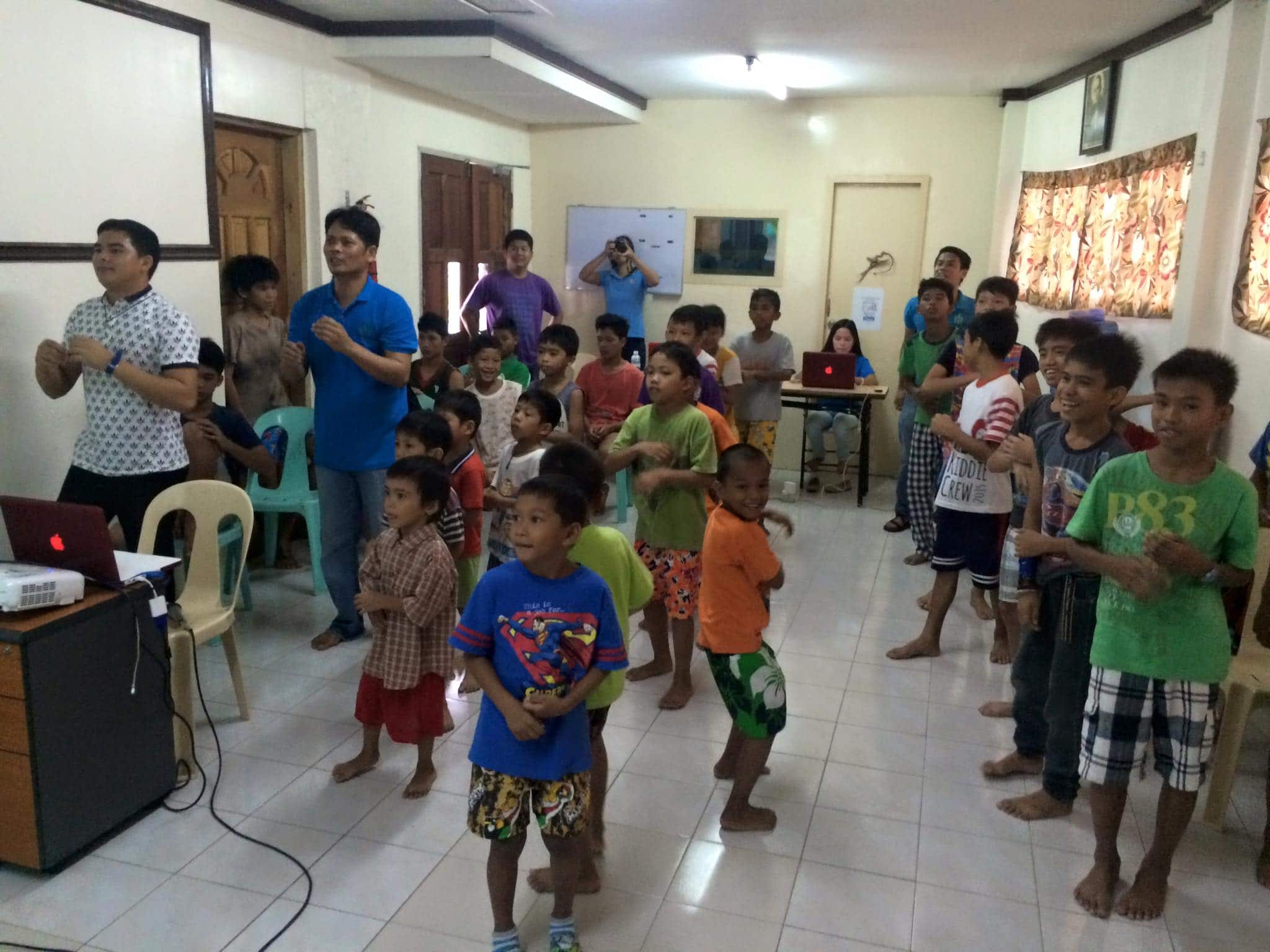
Get up. Beg. Buy food. Go to sleep.
It was a different kind of ‘come and see’ that Fr Lionel Mechavez SM spoke to a young child when he found him under an industrial generator outside a restaurant, several years ago.
Jerrel had been sleeping under that generator for the past five years.
Fr Lionel told the boy that there was a place for him at Bulay Pasilungan – two words meaning ‘home’ and ‘shelter’ – the Marist centre for street boys in Davao City, the main city on the Philippines’ second largest island, and at one time the country’s murder capital.
As with virtually all of the centre’s 40 boys, aged five to 15, untold trauma meant that Jerrel was highly suspicious of the cheery, 38-year-old priest, thinking he must have been a police officer; hardly surprising in a city ruled for seven terms by the country’s now-president, Rodrigo Duterte, currently facing condemnation for encouraging extra-judicial and vigilante killings of drug addicts.
“I said to him, ‘there is a place for you at Bulay Pasilungan’ and he came and had a look and was a bit worried at first,” Fr Lionel said.
“But now he is one of our residents. And he’s happy here.”
Fr Lionel was recently in Sydney to attend a Marist gathering, and spoke to The Catholic Weekly about the mission he and his mostly lay colleagues at Bulay Pasilungan seek to live out.
Some of the boys ran away from home, usually from situations of dysfunction – alcoholism, drug use, physical and sexual abuse.
Others were abandoned, or their parents had died.
The overwhelming determinant, no matter what other social problems there may be, Fr Lionel says, is crushing poverty.
Some of the poorest might send their children out to beg so as to not have to work themselves, but others sent them out of necessity, so as to buy a kilo of rice at day’s end; the family’s welfare on a young boys shoulders.
There is one other consecrated Marist at the centre, the rest are laypeople: five house mothers and fathers, educators, a cook and a cleaner.
Then there is the specialist help the centre engages for the boys – psychologists and counsellors, particularly – to help the children overcome what they experienced at home, and then on the streets, where gangs and crime predominate.
It’s been in operation since 1989, including under the operation of two other orders. And it’s been a mission ground that has benefited from several Australian and New Zealand Marists along the way, including Fr Ross Naylor SM, currently in the diocese of Wollongong.
(Students from St Joseph’s in Hunters Hill, Sydney, have also assisted and visited the centre.)
Fr Lionel is responsible for a new initiative at Bulay Pasilunga in addition to its residential care and drop-in centre – a bridging program for boys, who, according to a policy of necessity, were previously asked to leave when they reached 15.
“It is so sad to discharge a boy. When he gets to 15 years old, where is he going? What is he going to do?”
Fr Lionel set up an apartment, which is currently occupied by six boys eking out their own futures, secure in the care and the education they are receiving.
Two of the young gents are doing an automotive course, one plumbing, one hair styling and two are studying Alternative Learning.
Born and raised in Davao City, Fr Lionel has been a Marist priest now for eight years and was involved in prison ministry before taking up his current role – a role he loves.
Before prison ministry, he would travel into remote and largely-Muslim dominated areas, to offer Mass in small villages, accessible only on horseback or by foot.
“When I was asked to do it I said ‘homeless children!’, but I discerned it and I thought, yes!
“It’s very tough, knowing that these kids are very broken. How can you be an apostle or shepherd to them. How will you help them?
“But once they experience the centre, and it is in their life, they will say, ‘I was there in that centre. And I had the experience of being loved.’”
A few years ago, Fr Lionel gathered the first ‘graduates’ of the centre from the late 1980s and early 1990s. Among them were a few tax drivers, a teacher, and men running their own businesses. Many had families and children of their own, one of whom asked for his son to be baptised at the centre.
For more information, visit maristmissions.com or call (02) 9844 2275.
